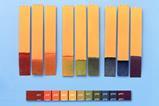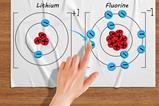Kristy Turner shares a humorous account of her experiences as an examiner and explains why you should consider taking it up

At last, it’s all done. After countless hours of screen time, I finally see the words ‘no more items to mark’. That’s my exam marking done for another year. I am a veteran; it’s my specialist subject. I was lucky to pick up my first exam marking contract during my newly qualified teacher year (I’m heading into my 19th year of teaching now) and have marked various components ever since. In 2022, after a two-year break, I seriously considered not resuming. But here I am.
I remember the days of trekking to the post office to collect bags full of papers, but it’s electronic systems that have dominated my marking career. Many examiner colleagues still have a sense of misty-eyed nostalgia for physical marking – I’m not one of them. At least this way the candidates don’t end up with tea stains on their work and the computer does the adding up.
I have my set-up well sorted. Essential kit includes a laptop with a decent-sized screen to save my eyes, and an external USB number pad to stop me hunching over the keys and developing a stoop. My laptop converts to a tablet, so I can place it vertically on a cookbook stand to reduce scrolling for longer answers.
As a teacher, I tell students empty space is wasted potential … as an examiner, I curse teachers like me
Despite my tried-and-tested tricks to ease the process, it is still a gruelling task on top of a teaching job. At its best, candidate responses flash by as my fingers tap away in a binary code – 1, 0, 0, 1, 1. But, inevitably, there are longer questions and a whole page of prose appears on the screen. Some of these take what seems an age to pick through the spidery scrawl, scrutinising it for credit and contradiction. After a few, you begin to wish for the relief of a blank response! As a teacher, I tell my students empty space is wasted potential, don’t leave anything blank. As an examiner, I curse teachers like me.
Examine the pros and cons
Marking has a big impact on my family. I have no life for two or three weeks. While no stickler for tidiness, lower standards are required. My daughter doesn’t mind. She’s in child heaven – jacket potatoes every teatime! At the end of a long teaching year when I am running on fumes, it’s no wonder I considered giving it up.
There are arguments for and against getting involved in marking. In its favour, it is great CPD. When I first started teaching it certainly fast-tracked my pedagogical content knowledge, particularly as I taught quite small A-level classes. However, now the insight gained is minimal. Many examiners have a major gripe with the ratio of pay reward to time sacrifice. Fee structures can be complex and it’s sometimes difficult to work out what your final pay will be for the marking period. I have considered starting a timer each time I log on to get a cumulative total and calculate my hourly rate, but I suspect that way madness lies.
Ask yourself why
Perhaps the biggest question is: if you don’t mark, and I don’t mark, who does? Students deserve their responses to be assessed by highly-qualified specialists who give the task the time it deserves. The qualifications arising from all that marking are their passports to further education and employment. In chemistry, we’ve always been able to maintain good tolerances in terms of marking quality and accuracy, and that can only be maintained if we recruit quality colleagues when examiners retire or need a break. I have no doubt that the challenges seen in teacher recruitment are felt in the examining system as well.
So, the piles of tick grids have made their way to the recycling and the coins I used for the levelled responses are back in my purse. The payment has hit my bank account and already been spent on holidays. Despite the impact it has on my life, I think I’ll continue my marking run. Why? Because it matters.














No comments yet